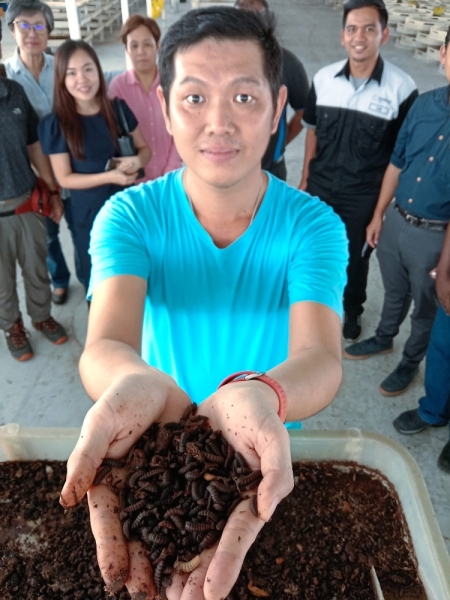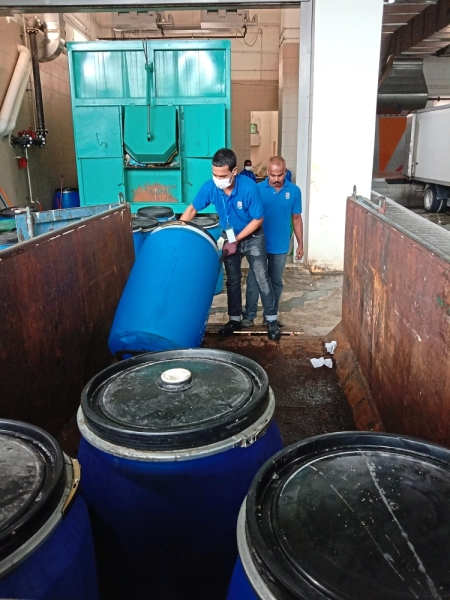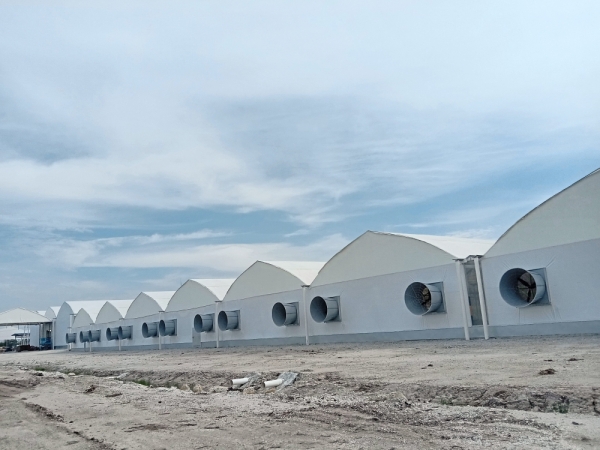2019-07-22
22 July 2019 - The Star Features on Central i-City's Food Waste Management
Read more at: https://www.thestar.com.my/metro/metro-news/2019/07/22/management-of-food-waste-takes-off/
Management of food waste takes off
To help with the separation process, each outlet at Central i-City mall is provided with a white bucket. Trolleys come by twice daily at 10am and 6pm for collection.
A NEW shopping centre in Shah Alam is collecting food waste from their food and beverage tenants and sending them to a farm that breeds black soldier flies to be recycled into animal feed and plant fertiliser.
Central i-City mall is using a different approach in managing food waste to overcome leachate problems.
“The original intention was to find a solution to a smelly waste problem that we needed to control,” said Anthony Dylan, chief operating officer of CPN Ventures which manages the mall.
The stench of rotting food, explained Dylan, is a common bane in most loading bays and the usual way of dealing with this is to use either highly perfumed chemicals or baking soda – which is a more eco-friendly option – to manage the leachate.

Neo with 15-day-old larvae fed on food waste. He says the facility needs 3.5 tonnes daily to feed about 1.4 million black soldier flies.
The management of the newly opened mall wanted to take a different approach to waste management.
The owners, admitted Dylan, were at first sceptical about the proposal as the plan required a budget for transport, machinery and labour.
“The first question they asked was: How much is this going to cost?” said Dylan. He gave them the big picture.
“I told them we could transport the food waste to the Jeram landfill. But tipping fees for pure food waste can cost up to RM200 per tonne so we would be paying up to RM6,828 per month as the mall produces 17,065kg of food waste from its 43 food and beverage outlets in just two weeks,” said Dylan.
In the past, the concept of sustainability in property management was usually about utility savings like using less electricity and water, said Dylan.
Few malls looked into the area of rubbish management.
Up to 2006, it became an operational problem, largely because of the smell from the food waste. Only in 2016, did malls start looking at rubbish seriously as by then, tipping and haulage fees were taking up to 6% of their earnings.
Support from tenants
CPN Ventures came up with a proposal for F&B tenants to separate their food waste and the mall management would collect it from their doorstep.

Food waste bins being loaded onto a dumper truck. Each bin can weigh up to 140kg.
Those who don’t separate their food waste will not be privy to this service.
In time, the management got its tenants to separate their food waste for the recycling project.
In explaining how food waste is generated, CPN Ventures general manager Carrie Kon said most of it is produced during preparation, comes as strainer waste and from unfinished orders.
The rest is made up of expired raw materials, carcasses, bones, seafood shells and unsold items. Usually, food waste is thrown into a single bin, together with dry rubbish like plastic straws, tumblers, boxes and wood.
“To help with the separation process, each outlet is provided with a white bucket. Trolleys come by twice daily at 10am and 6pm to do collection,” said Kon.

To ensure freshness, the larvae feed on food waste for no longer than a day.
Central i-City building executive Shahreen Rohizat said two awareness sessions were held since the mall’s opening in March this year.
“There were the usual excuses. No time. Too much hassle. But the managers liked the rubbish collection service because it spared them the trouble of having to assign workers and time to go downstairs to the refuse area,” said Shahreen.
For workers at the F&B outlets, not having to unload a heavy bag of rubbish downstairs on a daily basis was an attractive option.
The food court, a chicken rice shop and a Chinese restaurant have been named as the mall’s top three food waste contributors.
On a daily basis, the food court alone can generate more than 130kg of wet waste.

The food waste from Central i-City, Shah Alam, is taken to a black soldier fly farm in Bestari Jaya, Kuala Selangor.
From mall to farm
A private waste management company transports the food waste daily to a black soldier fly farm in Bestari Jaya, Kuala Selangor, where they have a RM41mil facility built according to French standards.
Hi Tech Waste Management executive director David Zon who has been actively looking for solutions to the food waste problem for the past 10 years said black soldier fly larvae would feed on the food waste. At the end of the larvae’s 45-day life cycle, the end product will be in the form of larvae as an animal feed additive and frass (larvae excrement) which can be used as fertiliser after further composting.
Entofood farm manager Neo Wie Xuan said the facility needs 3.5tonnes of food waste on a daily basis to feed some 1.4 million black soldier flies. The mall can only supply 1.5tonnes a day. A local brewery makes up the rest in spent grains.
“We have approached a lot of malls but not many are willing to segregate their food waste at source,” said Neo.